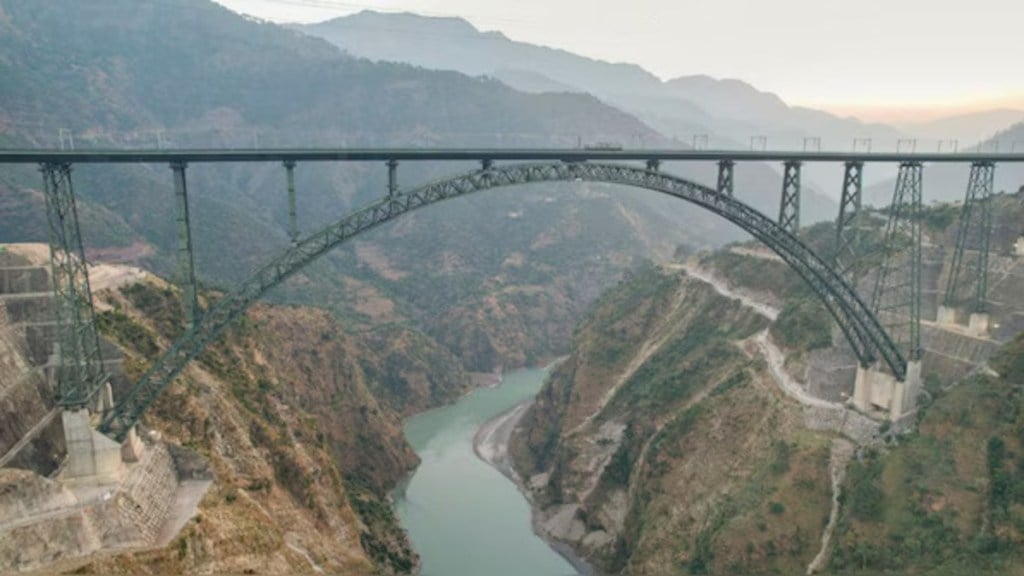Prime Minister Narendra Modi announced today, June 6th, marks a pivotal moment for Jammu and Kashmir, with the inauguration of infrastructure projects worth an astounding Rs. 46,000 crores set to profoundly transform the region. He further mentioned India’s engineering commitment to connectivity, the flagship projects include the Chenab Rail Bridge – the world’s highest railway bridge – and the Anji Bridge, India’s first cable-stayed rail bridge.
PM Narendra Modi tweets, "Tomorrow, 6th June is indeed a special day for my sisters and brothers of Jammu and Kashmir. Key infrastructure projects worth Rs. 46,000 crores are being inaugurated which will have a very positive impact on people’s lives. In addition to being an… pic.twitter.com/bEM5VNv96C
— ANI (@ANI) June 5, 2025
Here are the top 10 reasons that makes Chenab rail bridge a historic achievement:
1. World’s Highest Railway Bridge
The Chenab Rail Bridge is 359 meters from the riverbed which makes it the tallest railway bridge in the world, higher than the Eiffel Tower.
2. Engineering Marvel in Extreme Terrain
The bridge was constructed in the challenging topography of Jammu and Kashmir’s Reasi district. The construction of this bridge also faced severe geological, seismic, and weather-related obstacles, which display its advanced engineering and construction techniques.
3. Strategic National Integration
Chenab Bridge is a critical part of the Udhampur-Srinagar-Baramulla Rail Link (USBRL) project, connecting the Kashmir Valley with the rest of India by rail for the first time.
4. Boosts Security and Military Mobility
The robust design, including blast resistance and seismic resilience, supports rapid military deployment and logistics, enhancing India’s security position in a sensitive border region.
5. Symbol of Technological Prowess
The bridge shows India’s technological capabilities, involving collaborations with top Indian institutions like IITs and DRDO, and by using latest and effective construction methods.
6. Economic and Social Impact
The bridge construction will improve rail connectivity and stimulate economic growth, tourism, and social development in Jammu and Kashmir.
7. Architectural Innovation
The bridge features a 467-meter main steel arch—the longest of its kind—the bridge uses high-strength steel and innovative cable-crane technology.
8. Designed for Longevity and Safety
The bridge is built with a projected lifespan of 120 years, which can handle high winds (up to 266 km/h), earthquakes (zone V), and even explosions, ensuring long-term safety.
9. National and Geopolitical Significance
This bridge symbolises India’s resolve and presence in a sensitive geopolitical area, affirming sovereignty and promoting unity and development.
10. Environmental and Collaborative Achievement
This project, a model for future infrastructure, minimised environmental impact by combining international and Indian expertise.

